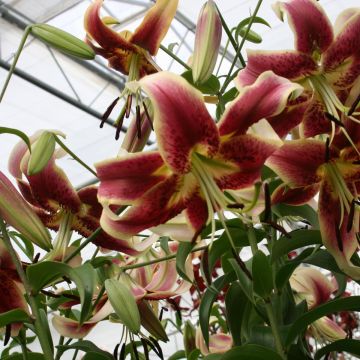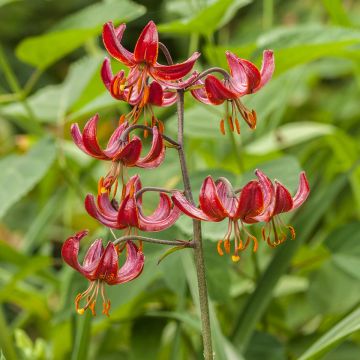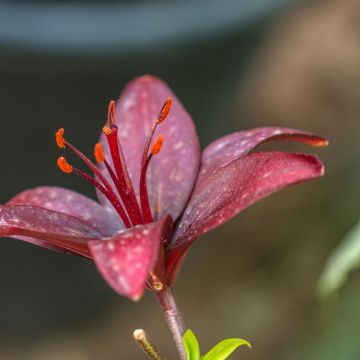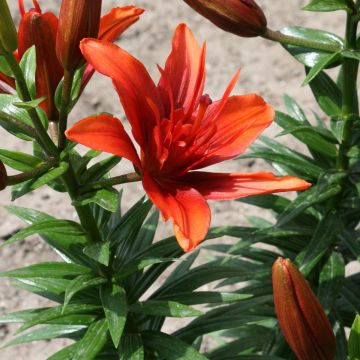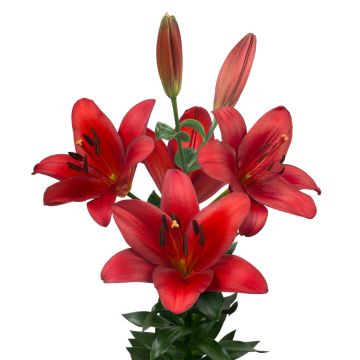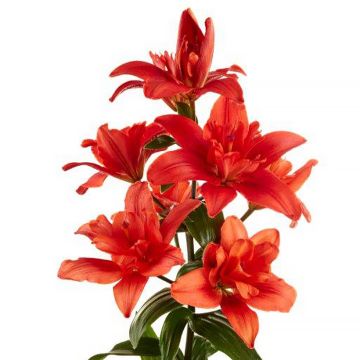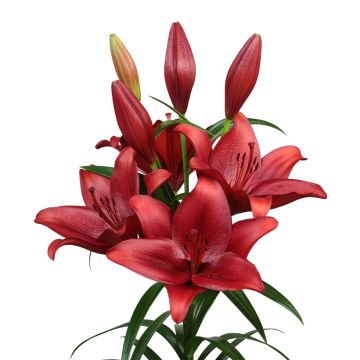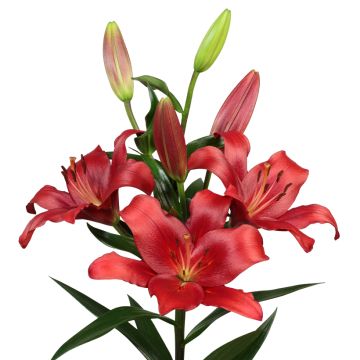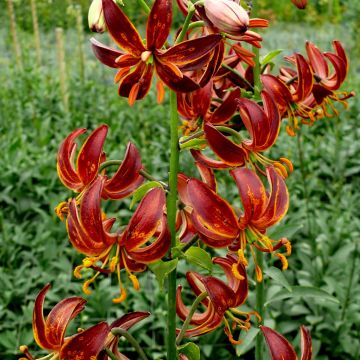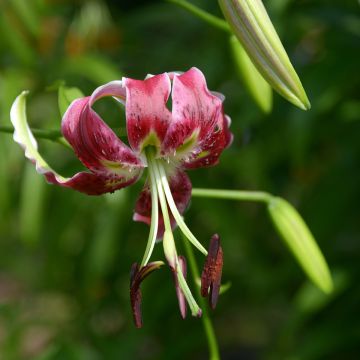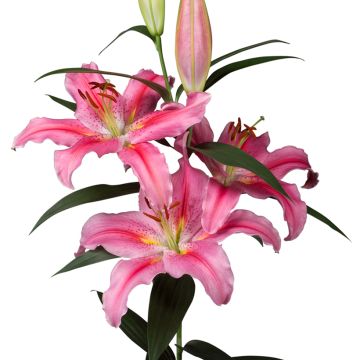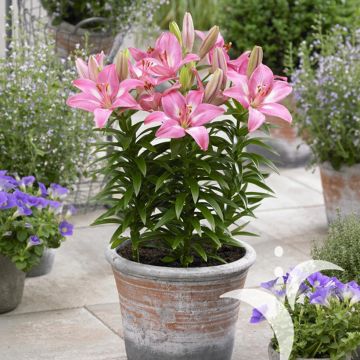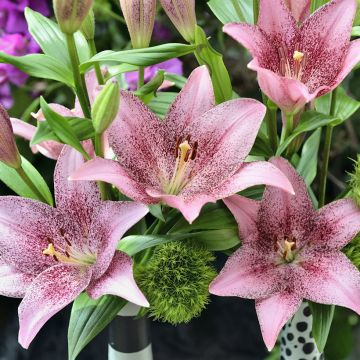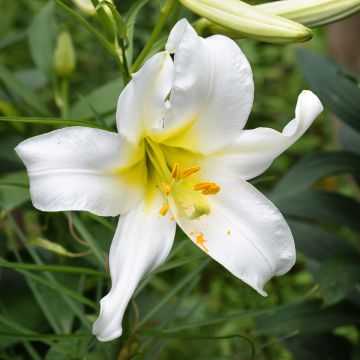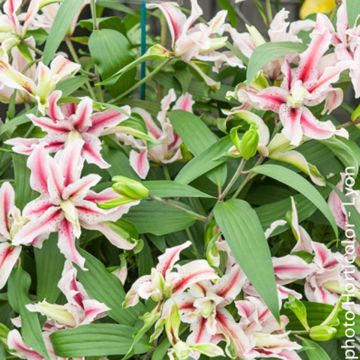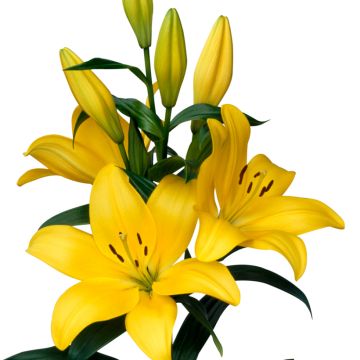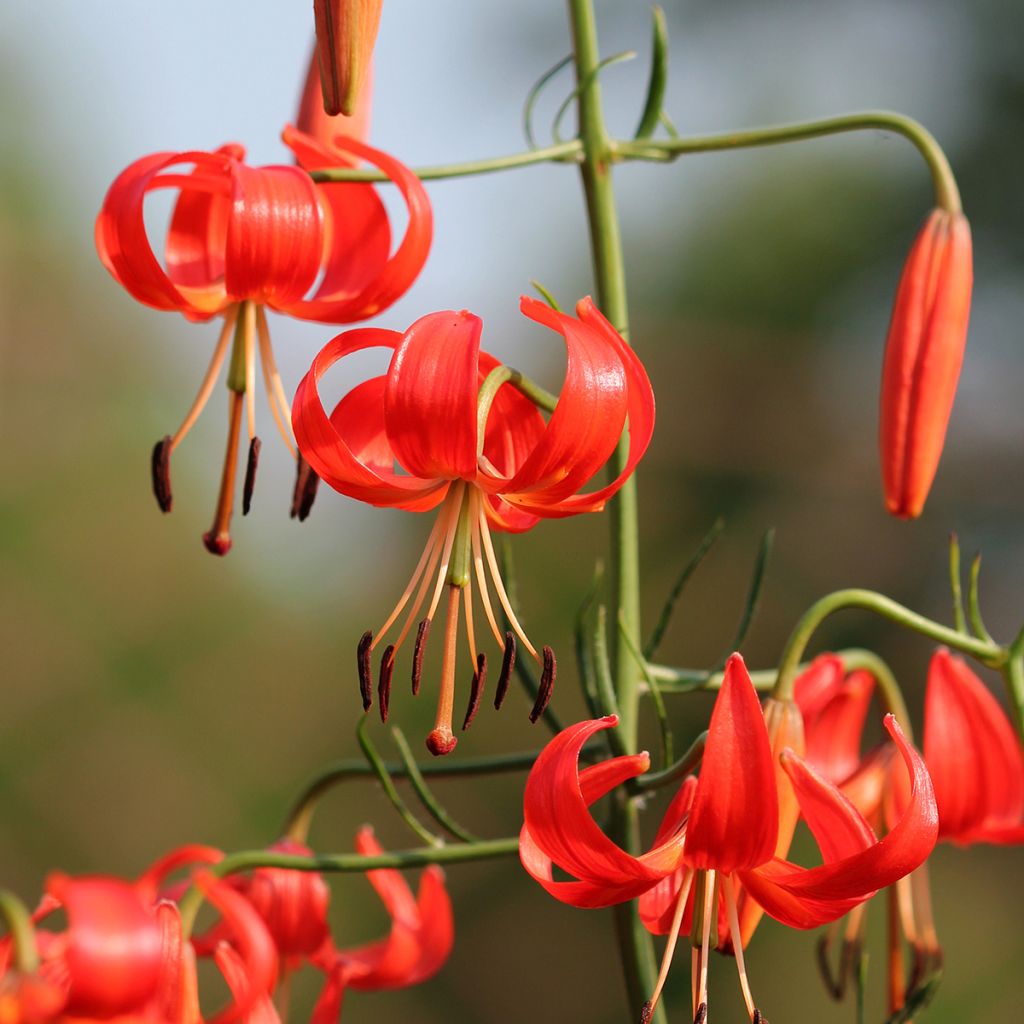

Lis botanique corail - Lilium pumilum
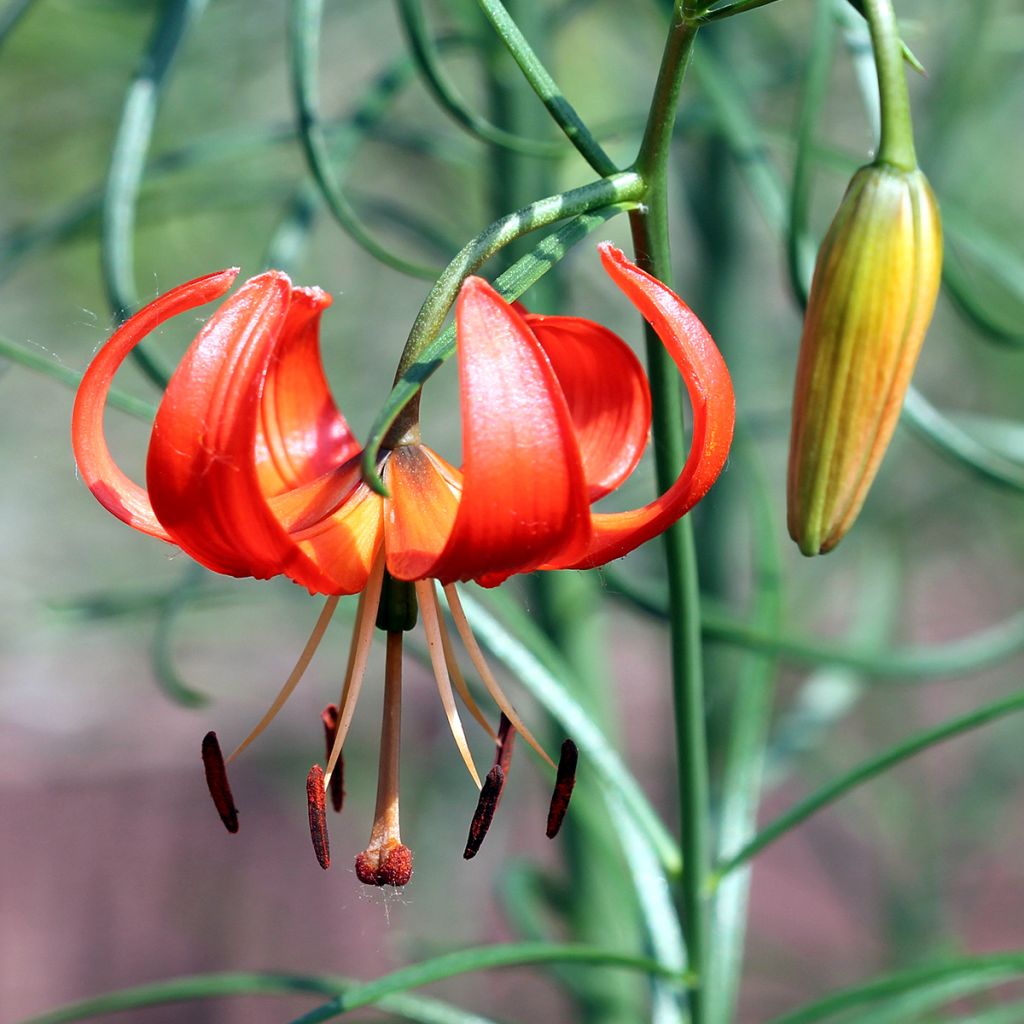

Lis botanique corail - Lilium pumilum
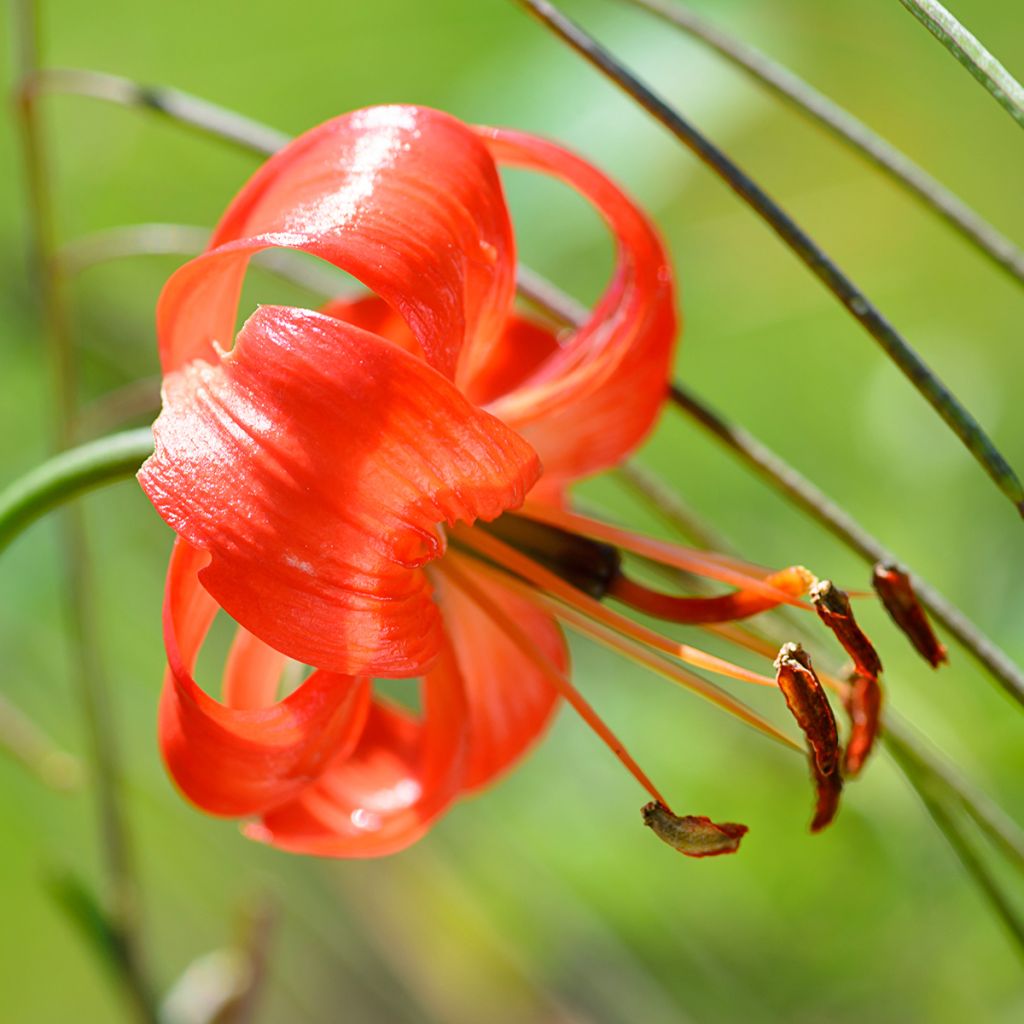

Lis botanique corail - Lilium pumilum
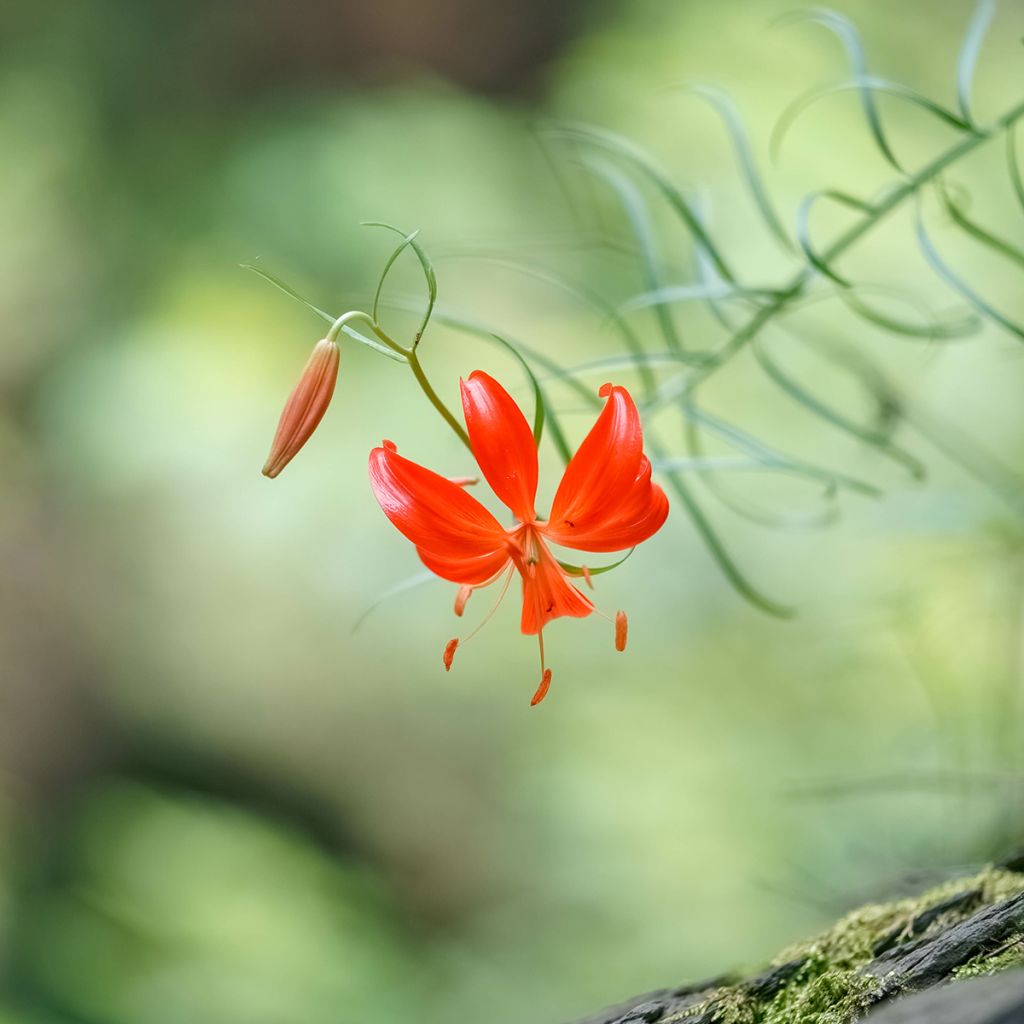

Lis botanique corail - Lilium pumilum
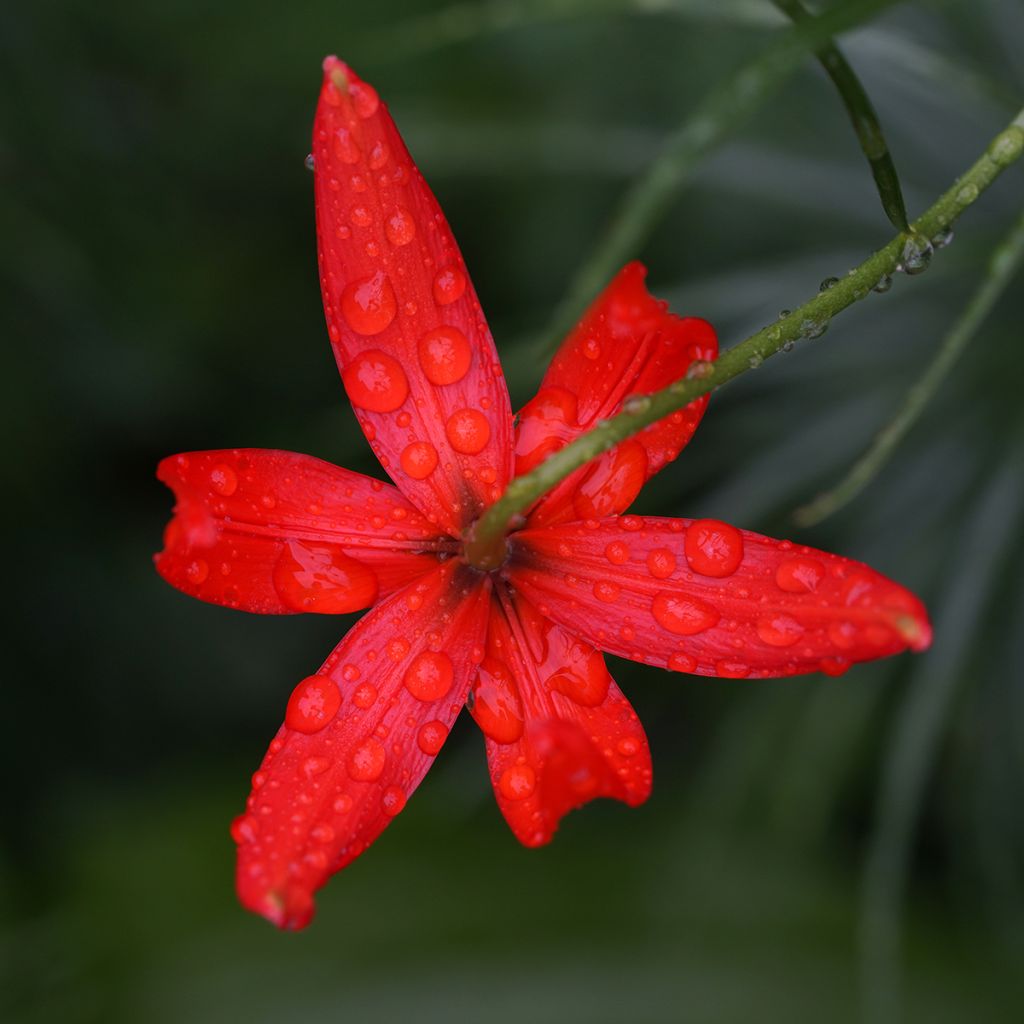

Lis botanique corail - Lilium pumilum
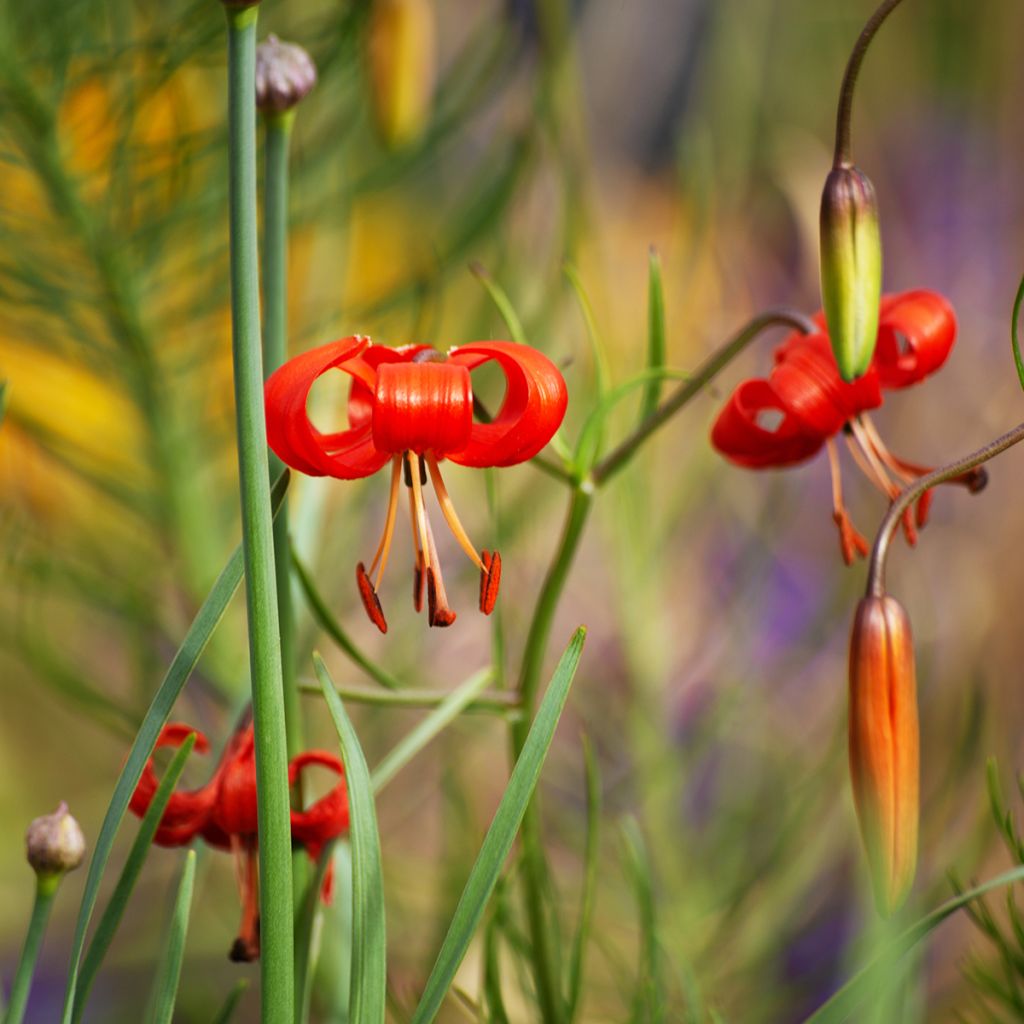

Lis botanique corail - Lilium pumilum
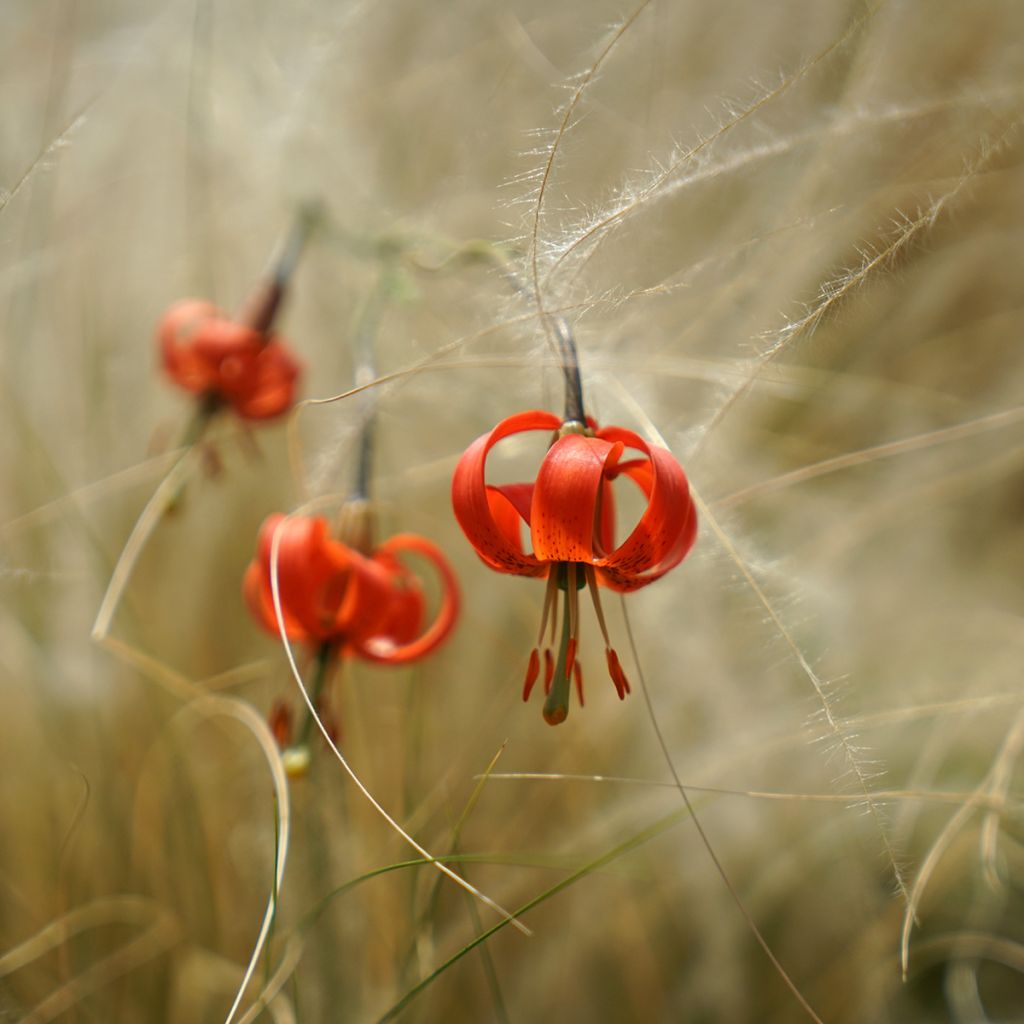

Lis botanique corail - Lilium pumilum
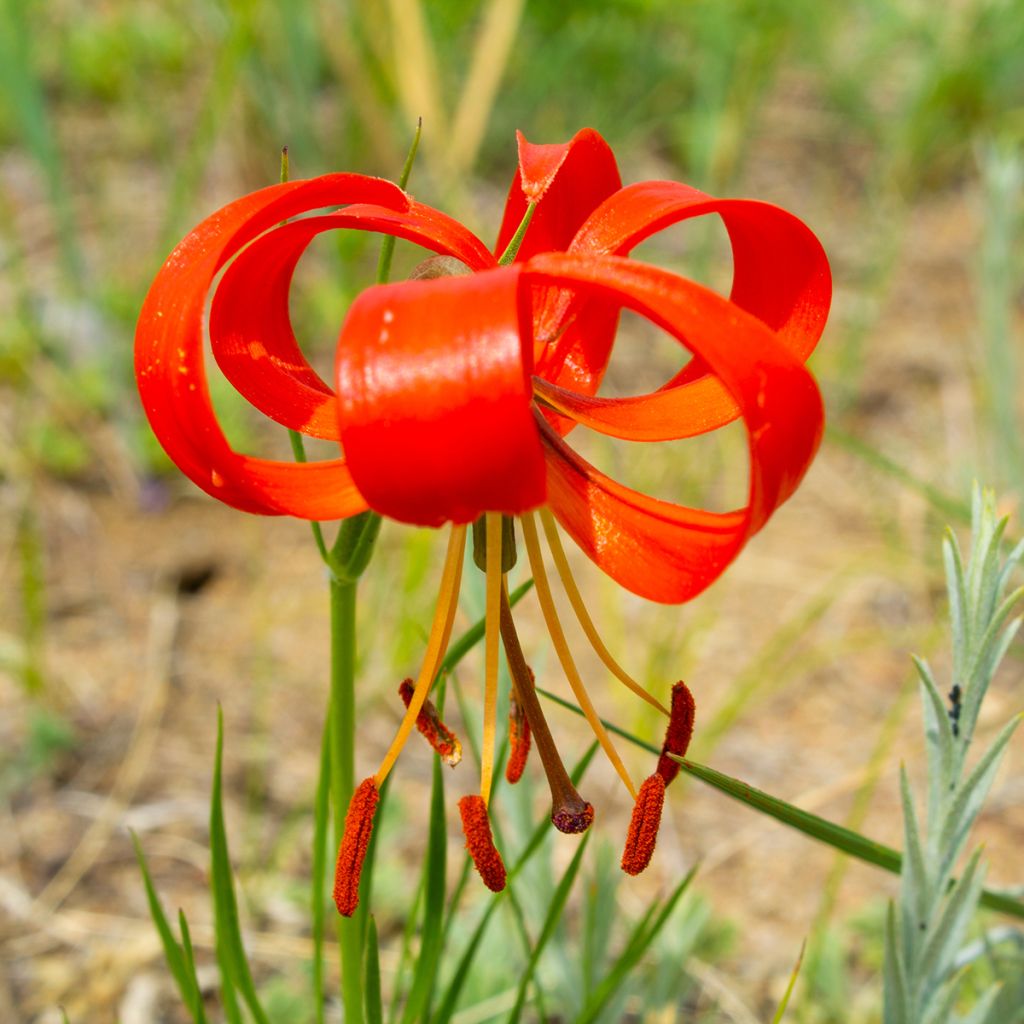

Lis botanique corail - Lilium pumilum
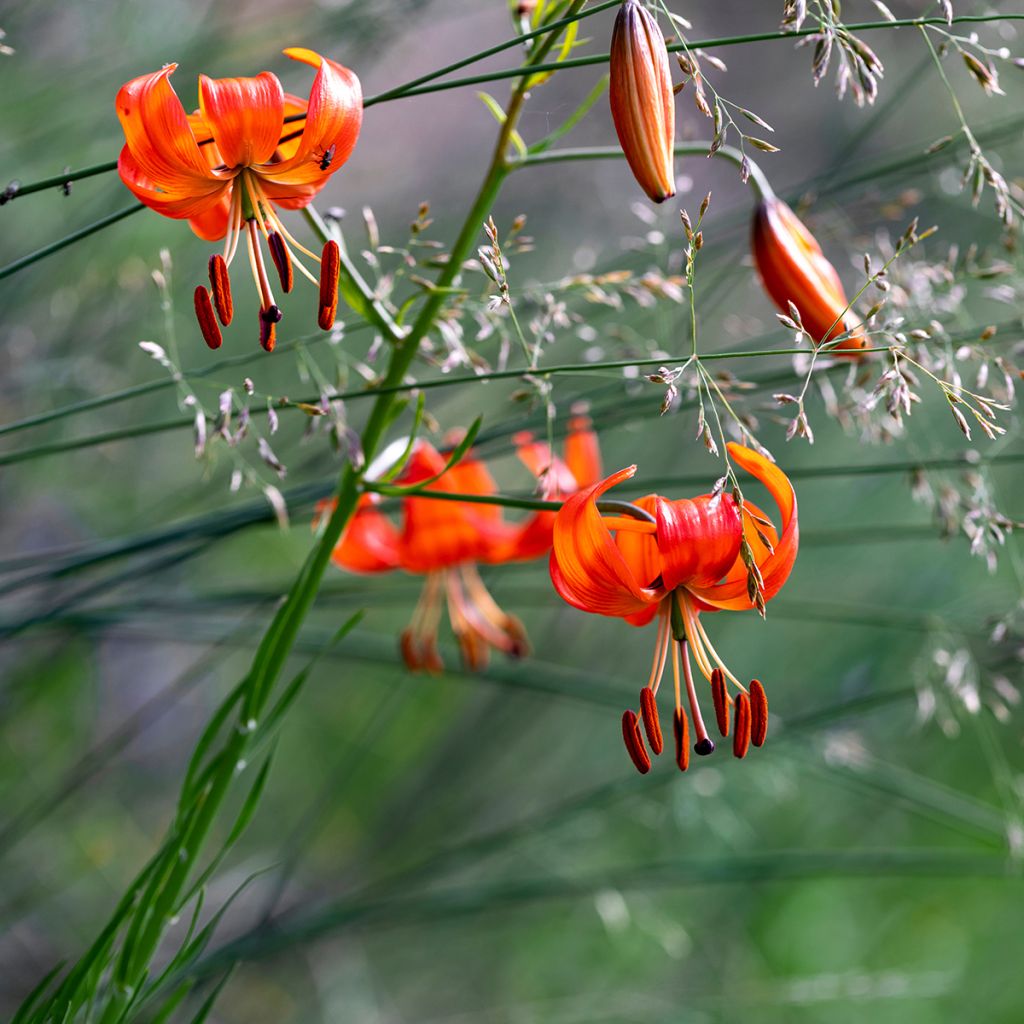

Lis botanique corail - Lilium pumilum
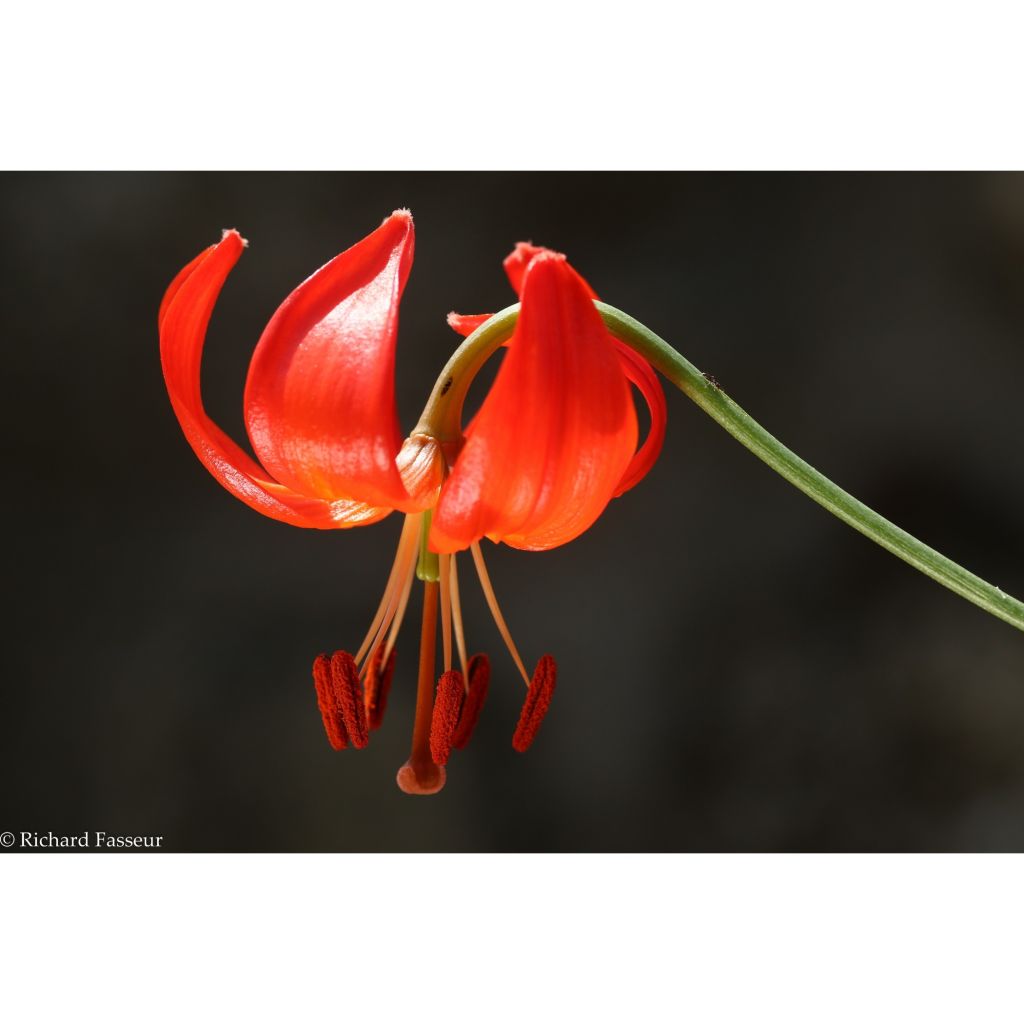

Lilium pumilum - Lily
Lilium pumilum - Lily
Lilium pumilum
Coral Lily, Dwarf Lily
Why not try an alternative variety in stock?
View all →This plant carries a 6 months recovery warranty
More information
We guarantee the quality of our plants for a full growing cycle, and will replace at our expense any plant that fails to recover under normal climatic and planting conditions.
From €5.90 for pickup delivery and €6.90 for home delivery
Express home delivery from €8.90.
Does this plant fit my garden?
Set up your Plantfit profile →
Description
Lilium pumilum, also known as Coral Lily, Dwarf Lily or Lilium tenuifolium, is a botanical species with early and particularly long flowering. This species is one of the smallest in the genus and bears small pendulous, vibrant coral flowers, remarkably shiny and pleasantly scented. It is easy to grow, even in mountain gardens. It is a very hardy plant that naturalises easily in well-drained soil and full sun, making it ideal for rock gardens.
The Coral Lily belongs to the Liliaceae family. It is a species native to Siberia, extending to northern China and North Korea. Its natural habitat is mountains, forest edges, rocky or grassy slopes, and sandy riverbanks. This lily has a compact clump-like habit and will reach a height of 45 to 50 cm (18 to 20in) when in flower, sometimes more depending on the growing conditions. It begins flowering in May and continues until the early summer heat in June. The stems bear 1 to 20 pendulous flowers, approximately 4-5 cm (2in) in diameter and highly scented. The 4 cm (2in) by 1 cm (0in) tepals are reflexed (turban-shaped), waxy and coral red, with a truly shiny texture. The leaves are very narrow and linear, resembling grasses; Lilium pumilum is actually a synonym for L. tenuifolium. The storage organ is a small scaly bulb 2 to 4 cm (1 to 2in) in diameter.
All blue plants contrast wonderfully with the coral red of this small Lily. Non-invasive mountain perennial plants such as delphiniums (Delphinium elatum, Delphinium grandiflorum) or gentians will form a dazzling combination. You can recreate a very natural scene, similar to those seen in Siberian steppes, by combining Coral Lily with delicate Siberian irises, bugloss, Siberian squill, and Perovskia atriciplicifolia. You can also plant it with martagon lilies that like the same growing conditions. It is ideal for borders, rock gardens, and of course, bouquets.
Report an error about the product description
Lilium pumilum - Lily in pictures
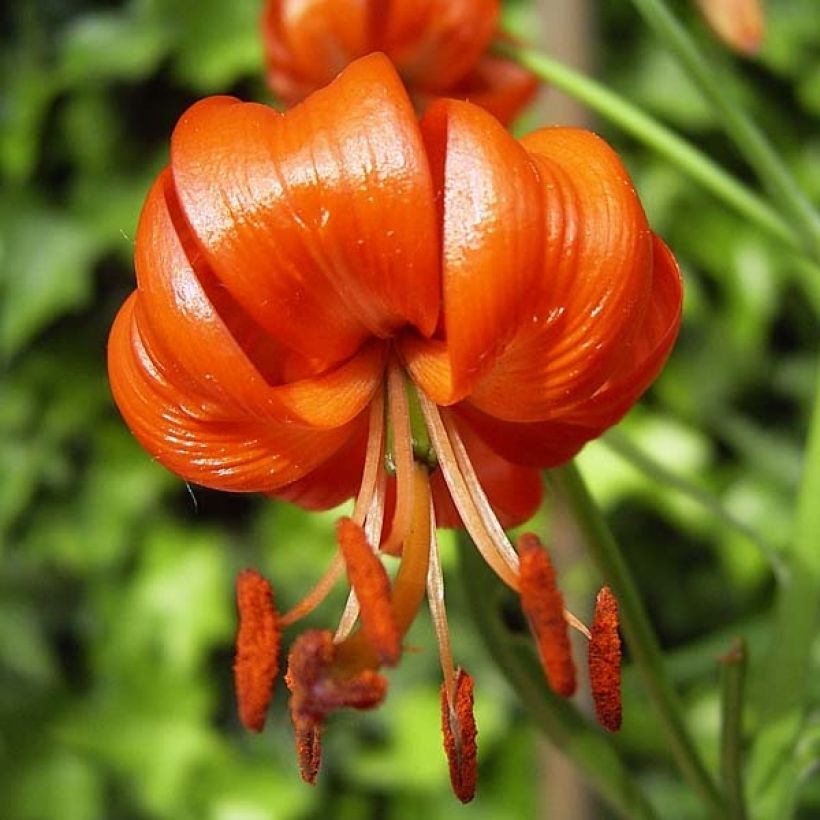

Plant habit
Flowering
Foliage
Botanical data
Lilium
pumilum
Liliaceae
Coral Lily, Dwarf Lily
East Asia
Other Lilies A to Z
Planting and care
Lilium pumilum is not very difficult to grow, however, this botanical Lily will need very well-drained, humus-rich, moist soil. Plant it in full sun or bright partial shade, in autumn or spring as soon as you receive the bulbs, which must not dry out. It is very hardy. Plant the bulbs 10 cm (4in) deep in a pocket of soil mixed with leaf compost. Surround them with a layer of sand that will protect them from rot and slug attacks while allowing them to grow more easily. Mark the planting location, as vegetation only starts in March-April. If red lily beetles appear, treat them immediately, as their larvae can devour all the leaves. The most effective method is to catch them by hand, but be careful as they drop as soon as you touch them.
After flowering, it is a good idea to cut the faded flowers halfway to keep the bed beautiful during the summer and prevent the plant from exhausting itself by producing seeds. This lily is apomictic, which means it is capable of producing viable seeds without pollination. Lilies are also perfect for container gardening. Plant 1 to 5 bulbs in a deep pot. Water them lightly and place your pots in a frost-free location. Bring them out in spring and enjoy their fragrance on your terrace!
Planting period
Intended location
Care
-
, onOrder confirmed
Reply from on Promesse de fleurs
Haven't found what you were looking for?
Hardiness is the lowest winter temperature a plant can endure without suffering serious damage or even dying. However, hardiness is affected by location (a sheltered area, such as a patio), protection (winter cover) and soil type (hardiness is improved by well-drained soil).

Photo Sharing Terms & Conditions
In order to encourage gardeners to interact and share their experiences, Promesse de fleurs offers various media enabling content to be uploaded onto its Site - in particular via the ‘Photo sharing’ module.
The User agrees to refrain from:
- Posting any content that is illegal, prejudicial, insulting, racist, inciteful to hatred, revisionist, contrary to public decency, that infringes on privacy or on the privacy rights of third parties, in particular the publicity rights of persons and goods, intellectual property rights, or the right to privacy.
- Submitting content on behalf of a third party;
- Impersonate the identity of a third party and/or publish any personal information about a third party;
In general, the User undertakes to refrain from any unethical behaviour.
All Content (in particular text, comments, files, images, photos, videos, creative works, etc.), which may be subject to property or intellectual property rights, image or other private rights, shall remain the property of the User, subject to the limited rights granted by the terms of the licence granted by Promesse de fleurs as stated below. Users are at liberty to publish or not to publish such Content on the Site, notably via the ‘Photo Sharing’ facility, and accept that this Content shall be made public and freely accessible, notably on the Internet.
Users further acknowledge, undertake to have ,and guarantee that they hold all necessary rights and permissions to publish such material on the Site, in particular with regard to the legislation in force pertaining to any privacy, property, intellectual property, image, or contractual rights, or rights of any other nature. By publishing such Content on the Site, Users acknowledge accepting full liability as publishers of the Content within the meaning of the law, and grant Promesse de fleurs, free of charge, an inclusive, worldwide licence for the said Content for the entire duration of its publication, including all reproduction, representation, up/downloading, displaying, performing, transmission, and storage rights.
Users also grant permission for their name to be linked to the Content and accept that this link may not always be made available.
By engaging in posting material, Users consent to their Content becoming automatically accessible on the Internet, in particular on other sites and/or blogs and/or web pages of the Promesse de fleurs site, including in particular social pages and the Promesse de fleurs catalogue.
Users may secure the removal of entrusted content free of charge by issuing a simple request via our contact form.
The flowering period indicated on our website applies to countries and regions located in USDA zone 8 (France, the United Kingdom, Ireland, the Netherlands, etc.)
It will vary according to where you live:
- In zones 9 to 10 (Italy, Spain, Greece, etc.), flowering will occur about 2 to 4 weeks earlier.
- In zones 6 to 7 (Germany, Poland, Slovenia, and lower mountainous regions), flowering will be delayed by 2 to 3 weeks.
- In zone 5 (Central Europe, Scandinavia), blooming will be delayed by 3 to 5 weeks.
In temperate climates, pruning of spring-flowering shrubs (forsythia, spireas, etc.) should be done just after flowering.
Pruning of summer-flowering shrubs (Indian Lilac, Perovskia, etc.) can be done in winter or spring.
In cold regions as well as with frost-sensitive plants, avoid pruning too early when severe frosts may still occur.
The planting period indicated on our website applies to countries and regions located in USDA zone 8 (France, United Kingdom, Ireland, Netherlands).
It will vary according to where you live:
- In Mediterranean zones (Marseille, Madrid, Milan, etc.), autumn and winter are the best planting periods.
- In continental zones (Strasbourg, Munich, Vienna, etc.), delay planting by 2 to 3 weeks in spring and bring it forward by 2 to 4 weeks in autumn.
- In mountainous regions (the Alps, Pyrenees, Carpathians, etc.), it is best to plant in late spring (May-June) or late summer (August-September).
The harvesting period indicated on our website applies to countries and regions in USDA zone 8 (France, England, Ireland, the Netherlands).
In colder areas (Scandinavia, Poland, Austria...) fruit and vegetable harvests are likely to be delayed by 3-4 weeks.
In warmer areas (Italy, Spain, Greece, etc.), harvesting will probably take place earlier, depending on weather conditions.
The sowing periods indicated on our website apply to countries and regions within USDA Zone 8 (France, UK, Ireland, Netherlands).
In colder areas (Scandinavia, Poland, Austria...), delay any outdoor sowing by 3-4 weeks, or sow under glass.
In warmer climes (Italy, Spain, Greece, etc.), bring outdoor sowing forward by a few weeks.

































